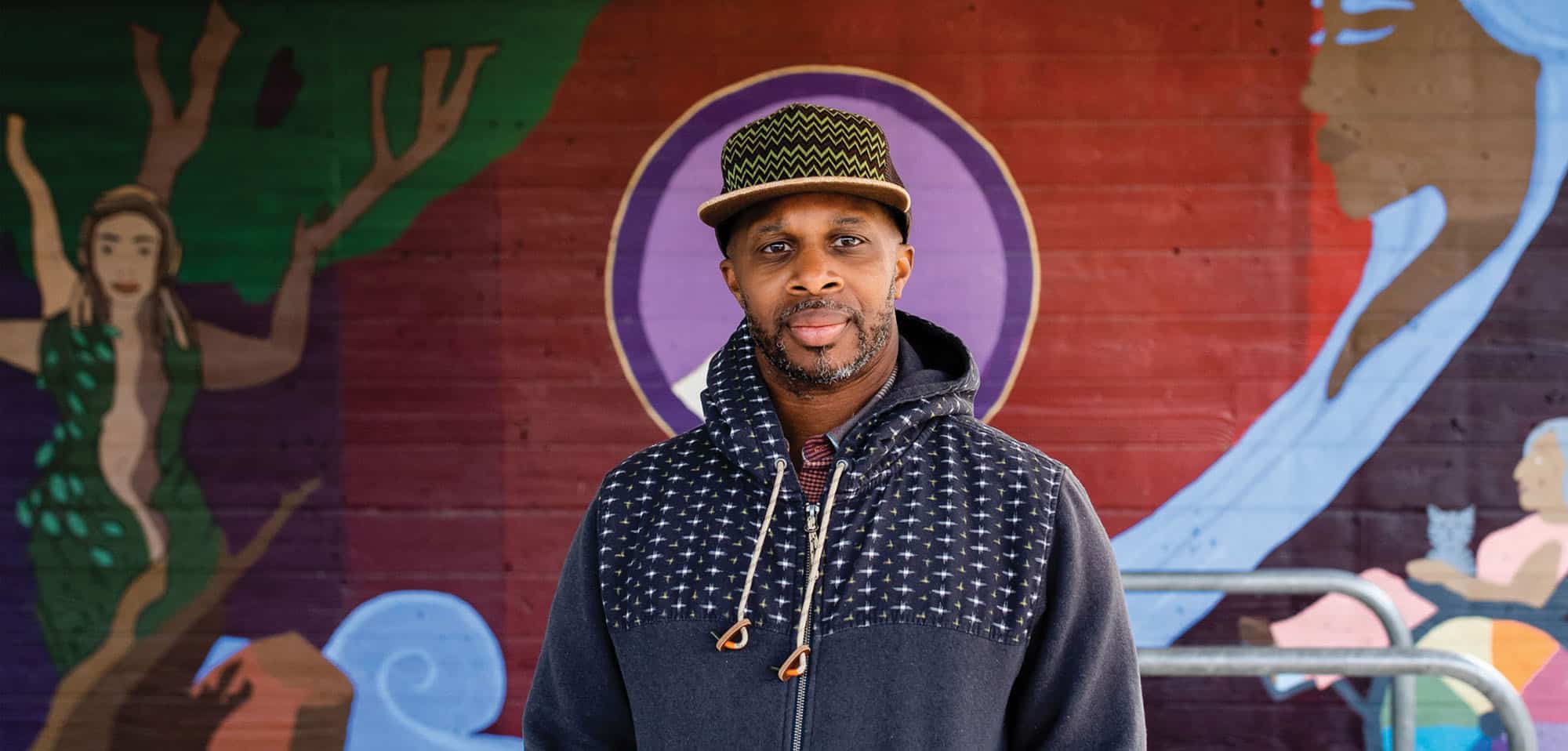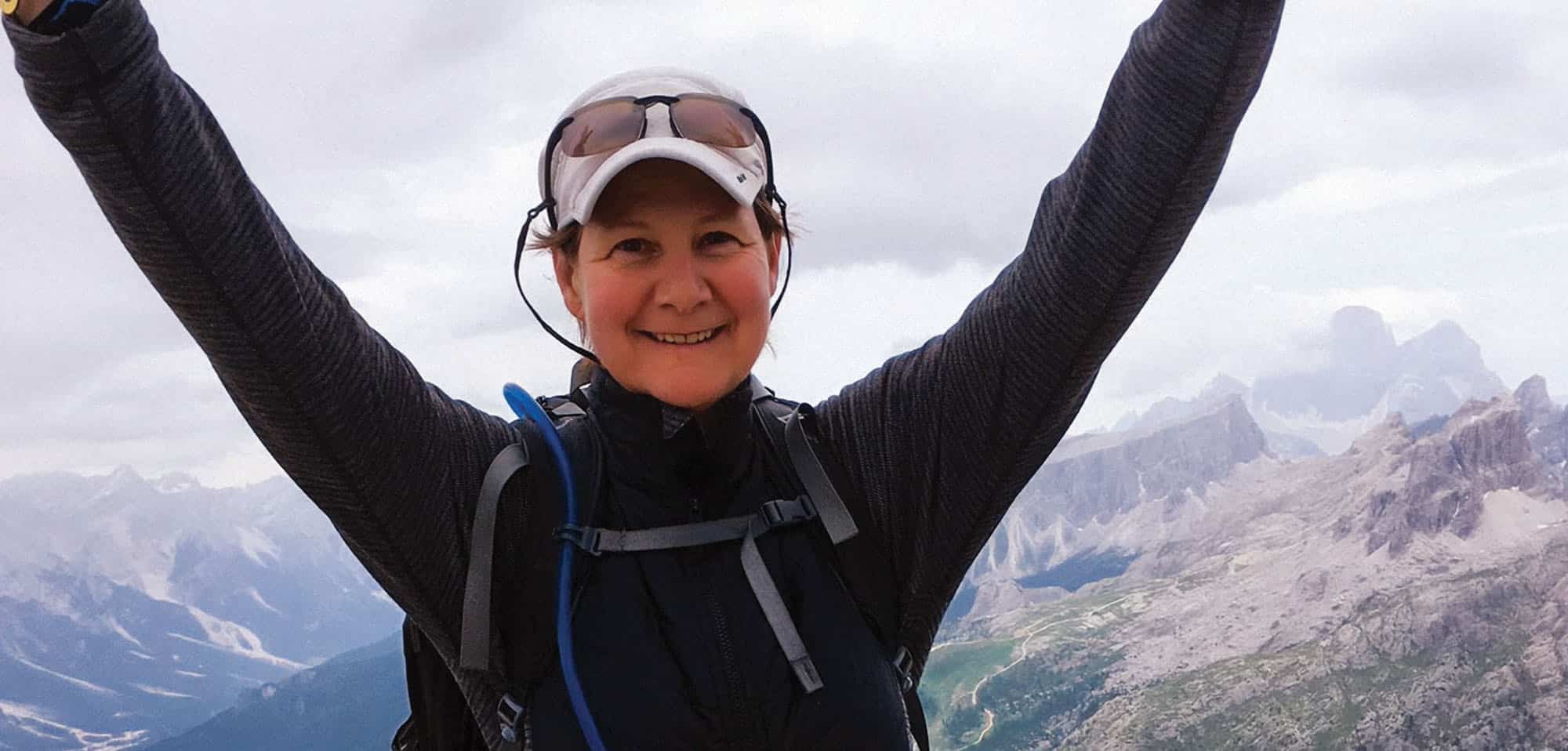Lisa and Brooks Witter Tap into Wise Roots
 “Looking back, there’s a peeling away of the layers that happens over time with basic teachings on nonattachment,” Brooks Witter (MA, 2005) says. “Just today, homeschooling my kid, I came right into contact with where my attachments create my suffering.”
“Looking back, there’s a peeling away of the layers that happens over time with basic teachings on nonattachment,” Brooks Witter (MA, 2005) says. “Just today, homeschooling my kid, I came right into contact with where my attachments create my suffering.”
As a Religious Studies major with a minor in psychology, Brooks had always been interested in the intersection of healing and spiritual experience. After a few false starts, including a brief stint as a photographer, he found the Contemplative Psychotherapy program. He felt that the training was “rich and unique and tailored to my interests and my desire to work in the healing arts.”
Lisa Witter (MA, 2004) had been working with teenage girls in the juvenile justice system in the Bay Area and looking for a graduate therapy program when she went on a three-day silent meditation retreat at Jack Kornfield’s Insight Institute. Fireworks went off for her.
“I wasn’t even sure that I wanted to be a therapist,” Lisa says. “But I felt like the Contemplative Psychotherapy program with its meditation component was training people to be better humans… If I’m going to do anything in life, I wanted to learn how to be a better human.”
Their paths converged in Naropa’s Graduate School of Counseling and Psychology.
“Being a better human is the ability to just be with shit as it unfolds—whether that’s the pandemic or the intense feelings of a client,” she adds. “That’s the piece of the program that keeps unfolding for me as long as I keep attending to it, and the ground of that is meditation.”
After graduation, both started their own private practice: Lisa founded Effective Parent Coaching and Brooks, Luminous Counseling.
Working with parents and teens in some capacity for the last twenty years, they co-founded Wise Roots Parenting in 2016, an online resource library that brings together “a set of experience-tested tools that work well for supporting system change in the family when the adolescent or young adult is struggling.” These tools were developed during the eight years that Brooks worked at Living Well Transitions, an organization founded by Naropa graduate Bill Sell.
“There’s the skills and the resources they need—an understanding about the teenage brain, addiction, consequences, structure—but then there’s the other side: you can’t give from an empty cup,” Lisa says. “As a parent, I may be well-resourced in terms of knowing the theories and fundamentals of parenting, but if I haven’t slept well enough, in those moments, I’m depleted and not a good mom.”
Both Lisa and Brooks had worked with a primitive skills healer on exploring ways to connect with nature. During the pandemic, they even moved to Lyons and arranged to take clients to a friend’s property near their home.
“Every day, I walk up to the open space behind us and connect with nature,” Lisa says. “That little act fills up my cup enough so that I can be the “good enough” parent that I want to be. And the need for this really hit home during the pandemic.”
“At the crux of so many parenting issues is being able to be with their children’s anger, sadness, and fear. How to be with anger in a way that both has a lot of care and structure,” she says. “That’s what I really appreciate about helping parents connect with the natural world and being able to give themselves permission to be really angry about whatever injustice and just really give themselves permission to do that.”
“And you actually have to build up your system to have the strength,” she continues. “The act of sitting with and tuning into a tree will offer you strength and solidity—there’s science that proves it. It’s called ‘earthing.’ You’re connecting deeply with something, and your cup just fills pretty quickly.”
This work is not just individual, it’s also ecological. The relationship with the Earth is happening, whether we’re tuned into it or not. And the more we can tune into it, the more strength and benefit and wisdom we can derive from the relationship. And the more we can then give that to others.
Brooks also utilizes nature-based connection work. “My clients are generally high-performing men who are struggling in some form or another” Brooks says. “And a big piece in promoting internal strength and willingness is fostering a connection to something bigger than themselves. When we step outside, we begin to participate in a world that is spontaneous, and there’s an order to it and a complexity. And there’s a life force that runs through it.”
“And then we start to weave our life force with a greater life force,” Brooks adds. “And that can really start to move emotional expression and energy.”
“Being in nature is a great holding environment to catalyze that process. It’s like getting a big hug,” he says. “And then there’s room for reverence and awe and there’s room for your ego to get out of the way…. You start to care for other things more readily, because you can receive that care more readily.”
After more than twenty years of working in the field, they find that helping clients tap into this wellspring of strength has never been more vital.
“When you heal as an individual, the systems that you are part of derive benefit from that strength and from that health,“ Brooks says. “And then they can bring that health and connection into their families, their work groups, and friend groups.”
“This work is not just individual, it’s also ecological,” he explains. “The relationship with the Earth is happening, whether we’re tuned into it or not. And the more we can tune into it, the more strength and benefit and wisdom we can derive from the relationship. And the more we can then give that to others.
Viewing connecting with nature as a grand gesture can sometimes be an obstacle for clients so Lisa emphasizes starting where you are. “This work can be simple. I can go on a walk in my neighborhood, find juniper berries, and then put some in my tea” she says. “It can be as simple as connecting with the tea that I’m drinking. It’s about connecting with yourself first. And then how do you give that connection to your children, your family, the bigger world?”
Brooks describes the clarifying process that was born out of the pandemic and how his meditation practice was instrumental.
“Life got very simple, and it focused the lens on what was most important, which was really family and supporting myself so that I could be available for the people who I need and who need me most,” he says. “In times like these, contemplative practice is essential in offering paths back to a posture of openness towards the difficult situations of life.”
Lisa emphasizes that the Contemplative Psychotherapy’s root teaching of Brilliant Sanity shines through in their work with parents. “We work with the whole family system. Everybody has a role, and there’s wisdom within each role. I get to help every family see the brilliant sanity of their particular system. The neurosis is so obvious, but the wisdom is also right there. Growing the sanity is the work I love to do every day.“
No one could have known exactly how much sanity would be nurtured in the world when Brooks and Lisa met at Naropa.





